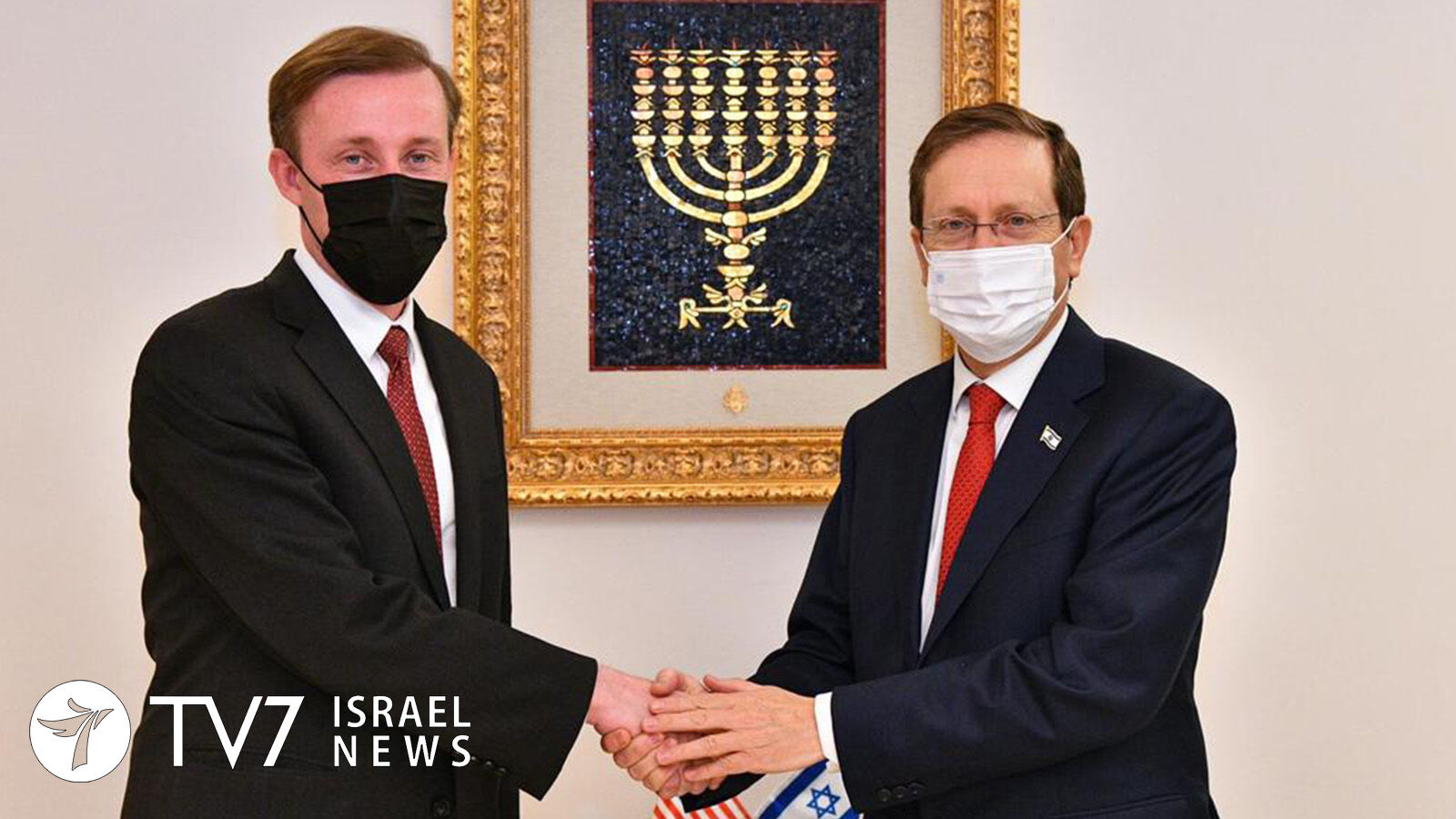Israeli President Isaac Herzog held a diplomatic working meeting with United States National Security Advisor Jake Sullivan soon after his arrival in Jerusalem last night.
By Erin Viner
Discussion between the two on regional issues was topped by the threat posed by the Islamic Republic of Iran.
The Israeli President expressed concern over Tehran’s progress toward the development of nuclear weapons under the cover of the negotiations in Vienna aimed at reviving the 2015 Joint Comprehensive Plan of Action (JCPOA).
According to a statement released after the talks, President Herzog described the Middle East as divided into two basic groupings: one of Israel and Arab states pursuing peace that work toward creation of a better world for their citizens while “resisting Iran,” versus the Islamic Republic’s “coalition of terror with its proxies, which seeks to destabilize the region.”
The President underscored the need to stop Iran obtaining nuclear weapons – “at any price.”
Also participating in the meeting were Israel’s Ambassador to the United States Mike Herzog, the US Ambassador to Israel Tom Nides, representatives of the US National Security Council, and representatives of the Israeli Ministry of Foreign Affairs.
President Herzog expressed his great appreciation for US President Joe Biden for his “warm friendship with Israel,” and thanked the American administration for “maintaining and reinforcing the strong and meaningful relationship between the two nations.”
Earlier this morning, Israeli Foreign Minister Yair Lapid held his own round of talks with the visiting US security chief. The two discussed the strategy to combat the Iranian nuclear program and joint Israeli-American cooperation on the matter, as well as geopolitical challenges and opportunities in the Middle East and additional regions.
The White House National Security Advisor subsequently met with Israeli Defense Minister Benny Gantz to discuss “strategic security challenges and areas of cooperation, with an emphasis on facing the Iranian nuclear threat as well as its regional aggression,” according to a Defense Ministry statement.
Minister Gantz thanked the advisor for his commitment and personal contribution to US-Israel ties and to Israel’s security, and also emphasized the importance of deepening collaboration in all areas, said the statement.
He also updated the advisor on confidence-building measures that the defense establishment is undertaking with the Palestinian Authority (PA), as well as counter-terrorism and other security missions in Judea and Samaria (West Bank).
Sullivan’s trip reportedly comes amid rising tensions between Washington and Jerusalem over Israeli settlement building. While the local Channel 13 news reported that Biden has yet to respond to Prime Minister Naftali Bennett’s appeal for a telephone conversation on the Vienna Talks made 3 weeks ago, the Israeli leader’s office said no formal request had been submitted and the topic had only been raised with US officials.
Sullivan is nevertheless slated to meet with Israeli Prime Minister Bennett during his trip, which is the first stop on his 3-day visit to the region. He is leading a delegation including the State Department’s Acting Assistant Secretary for Near Eastern Affairs Yael Lempert and US envoy to the Middle East Brett McGurk.
Israeli National Security Advisor Dr. Eyal Hulata will participate alongside his American counterpart at the bilateral Strategic Consultative Group, whose objective is collaborative attempts to prevent Iran from acquiring an atomic bomb.
After concluding his trip to Israel, Sullivan will then visit Ramallah for talks with Palestinian President Mahmoud Abbas.
Meanwhile, Assistant Secretary Lempert will head to neighboring Jordan to meet with senior government officials including Water and Irrigation Minister Mohammed Al-Najjar and Planning and International Cooperation Minister Nasser Shraideh, for talks likely to focus the recent energy deal between Amman and Jerusalem.
